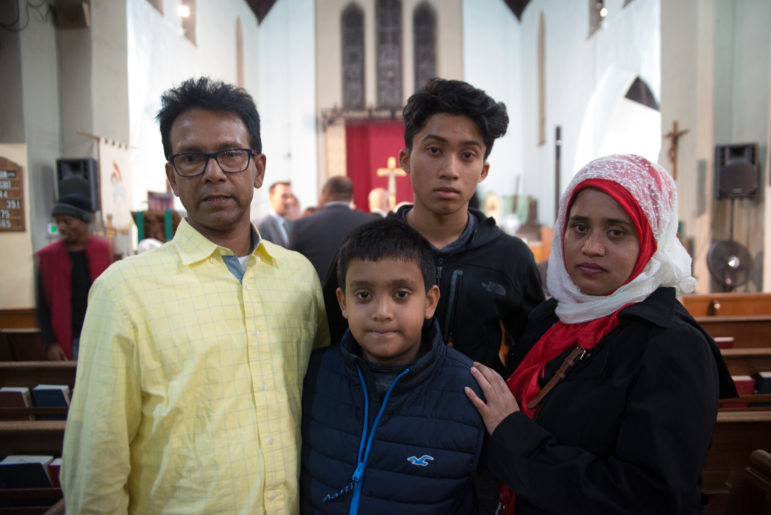
Katie Honan
Talukder came to the United States in the 1980s, when he was still a teenager, and qualified for the late amnesty program for green cards in 1990, he said. He later filed for asylum after receiving death threats from the Jamaat Islami Party, a fundamentalist party, while visiting Bangladesh, he said.
On a recent evening, on the top floor of an after-school test-prep center, Riaz Talukder sat with family, friends — and people he’d never met before — to talk about what they can do to keep him in Queens.
The 50-year-old father and Bangladeshi immigrant is set to check back in with Immigration and Customs Enforcement on Nov. 20, a month after his last check-in at 26 Federal Plaza.
During that brief visit, ICE agents told him to return with a passport and a plane ticket back to Bangladesh.
His lawyer fears the worst, and so does Talukder, who is the sole breadwinner for his family, which includes sons, Rafi, 15, and Radi, 10. His wife is currently battling throat cancer, with a surgery planned in December.
“No criminal history, works hard, pays taxes, two kids, wife with cancer,” his lawyer Edward Cuccia said. “It’s a pretty overwhelming thing.”
He’s now leaning on a network of grassroots organizations and neighbors to do anything to extend his stay of deportation order so he can continue to work out how to become a citizen.
At the most recent meeting in Jackson Heights, Talukder, who lives in Jamaica, broke down in tears, fearing for his family if they stay or go to Bangladesh to be with him.
“I need all the support I can get to stay in New York City,” he said.
Locally, he has the support of groups like Jackson Heights Immigrant Solidarity Network, which formed in March in the hopes of helping neighbors facing deportation, and their families.
Lucy Hirschel, one of the group’s members, was one of many activists who went with Talukder to his last ICE check-in. She held the most recent meeting to connect with other neighbors looking to help — and has heard from many other families in the same situation as the Talukders.
“The only way we’re going to fight this in the long term is to be public,” she said. “And I hope it helps in this case.”
Support has also come from Desis Rising Up and Moving, whose online petition on behalf of Talukder has garnered nearly 7,000 signatures in support.
And another help has been from Muhammad Rashid, a fellow Bangladeshi immigrant who runs the test prep center, Smart Academia, where some of the meetings have been held.
A leader in the local community, Rashid has worked on other deportation cases, getting political support and exposure in the hopes of delaying deportation. He’s also helped the families left after a member is deported, most recently the family of Bablu Sharif, who was deported in October.
He’s a citizen, but he still has nightmares about ICE knocking at his door, he said.
“It could be me,” Rashid said at the recent meeting. “I got lucky, he got unlucky. It could be me.”
Talukder came to the United States in the 1980s, when he was still a teenager, and qualified for the late amnesty program for green cards in 1990, he said.
He later filed for asylum after receiving death threats from the Jamaat Islami Party, a fundamentalist party, while visiting Bangladesh, he said.
But a lawyer messed up his paperwork. And he didn’t know a deportation order was issued for him in 1999 until ICE agents came knocking on his door during Ramadan in 2010, he said.
Talukder’s oldest son Rafi answered the door; he was eight.
“I just knew that it wasn’t anyone good,” the Bronx High School of Science student told supporters at a meeting held in October at St. Marks Church, a day before his dad’s check-in for that month.
His dad was detained for seven months, and he recalled he had to be the “man” of the house.
“It’s pretty hard to be a man when you’re just a kid,” he said, as he cried at the altar.
Once Taludker was released, he was granted a stay of deportation. He had a clear path to citizenship, his lawyer said—when his son turned 21 he could sponsor him for a green card. Talukder’s brother, who is a citizen, had also filed paperwork to sponsor his brother but the best chance was with his son. In the meantime he found work as a cab driver and checked-in at ICE every year where, since 2010, his stay has been renewed annually.
Under Obama, the continued stay of deportation was a courtesy to thousands of people like Talukder who had a path to citizenship, his lawyer said.
But in January, President Donald Trump signed a set of executive orders that sought to further enforce the country’s immigration laws.
Data shows the increased enforcement has resulted in more ICE arrests but fewer deportations, according to reports, which could be attributed to a backlog of cases. In New York City, there are currently more than 79,000 immigration cases pending, according to the Transition Records Access Clearinghouse at Syracuse University.
For Talukder, his lawyer is pushing for more time, and filed a motion to have his client’s asylum case reopened — submitting a more than 400-page document to the Board of Immigration Appeals in Washington D.C.
The paperwork includes letters of support from family, friends, elected officials and community members, and a lengthy psychiatric exam to show the damage it would cause to his family if he left.
Cuccia, who’s been Talukder’s lawyer for nearly a decade, said the extended appeals are new under Trump.
“Under the new world we live in, these are the kinds of hoops you have to jump through to stop someone from getting deported — and maybe it works,” he said. “There’s no guarantee it will.”
Talukder, meanwhile, says he still has to take care of his family in the short time he could have left with them.
“I still have to pay my rent, have to feed my kids, I have to take my wife to the hospital,” he said. “It’s tough for me, I have a pain in my heart.”


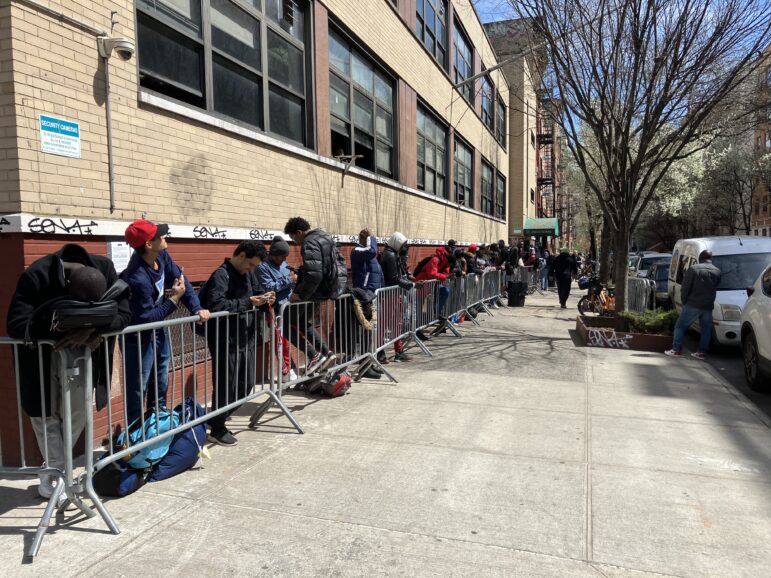
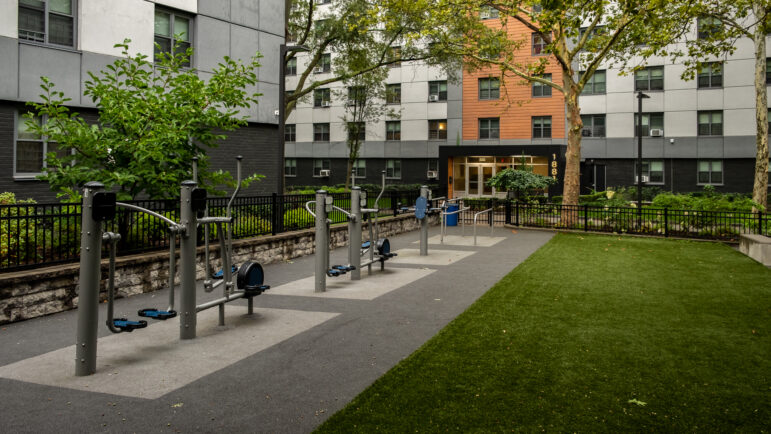
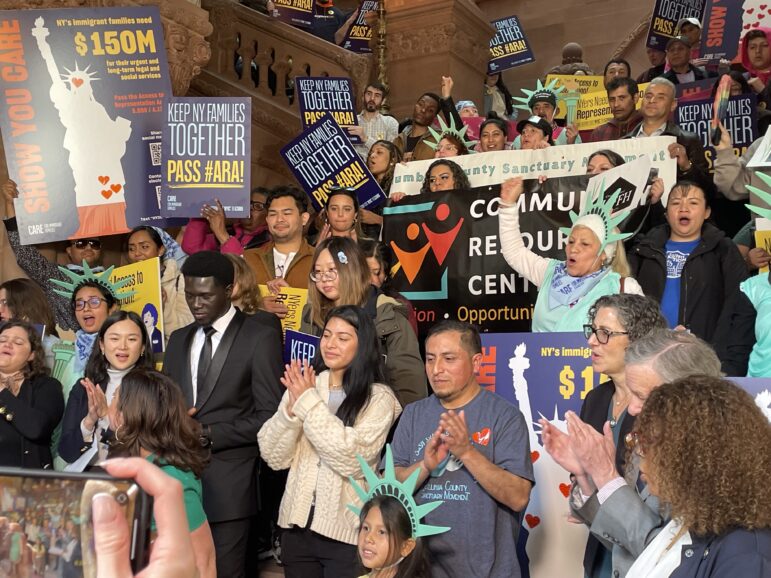
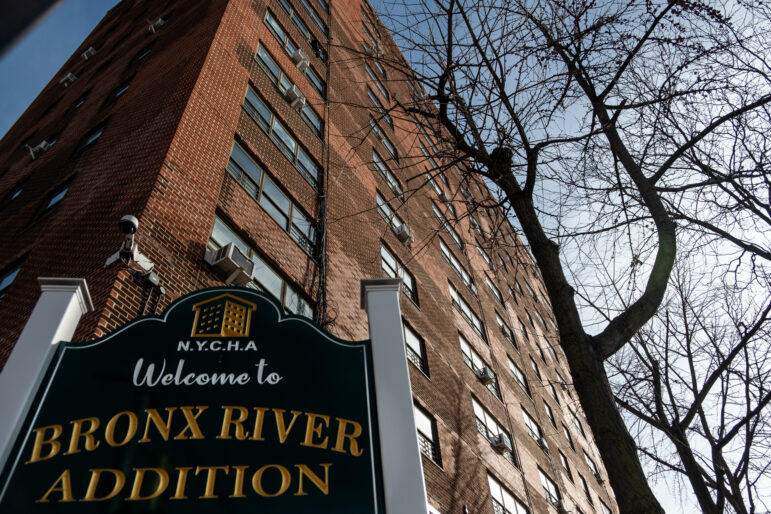



8 thoughts on “Queens Community Rallies Around Father of Two Told to Buy Plane Ticket for Deportation”
Thank you, Katie, for a thorough informative report on this important case. Many supporters will gather at the Federal Building in solidarity with Riaz, his family, and all immigrants this Monday at 9:00 A.M.
Hi Barbara,
Do you happen to have more information about this gathering? I was thinking of starting a facebook group to coordinate and recruit more to show. Please reply asap if you see this!
No one has a problem with legal immigrants who followed the laws of the federal govern,net which by the way were developed long before president Donald Trump came into the White House. The main difference is we now have a leader that is enforcing said laws. If you’re a country without laws and without borders, you don’t have a country. Illegal aliens on the other hand who don’t apply ahead of time to be legal in the first place and just take it upon themselves to sneak in are now going to be held accountable for their actions.
It will be at 26 Federal Plaza?
Pingback: – Queens Groups Stand Behind Father Fighting Deportation
i understand because i know radi he is my friend he was in the same class as me in 4th grade and he is a very good student . honestly I’m not a good student . but his father is working hard for them and needs to see how that hard work pays off . by if his sons become a doctor or something he needs to be there to support them.and he needs to support his sick wife who has cancer and is battling cancer . it was very hard to see radi cry it made my heart sink . and my eyes tear up .
Senator Jose Peralta, whose district includes this community, chose not to work with his fellow Democrats toward passage of the New York Liberty Act and Dream Act. Instead, he and other members of the IDC made a deal that hands leadership positions to the Republicans. To distract voters from their sneaky move, they claimed to be assisting people through allocations to the Vera Institute. Certainly seems as if they aren’t helping this man or his family. Shame on Peralta and the IDC!
What’s the update of this case please?